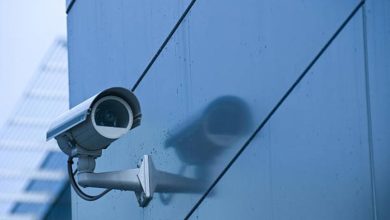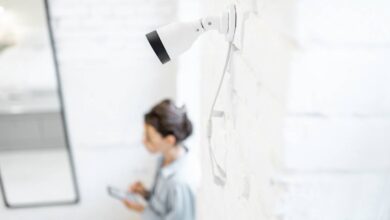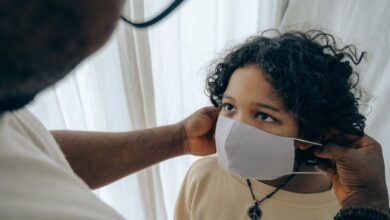Tips For Protecting Your Outdoor Security Equipment From Elements & Vandals!
KEY TAKEAWAYS
Outdoor security equipment can do a great job of protecting your home or business. It does, however, need some protection itself. In the UK, the main challenge is protecting it from the elements (and nature). You will, however, need to make sure that would-be intruders can’t tamper with it. Here are some tips to help.
To explain further, Nick Booth, Director of ISET Solutions shares his top tips for protecting your outdoor security equipment from elements and vandals.
Buy Weatherproof Cameras
In the UK, any equipment intended to be used outdoors needs to be able to stand up to heat, cold and, of course, wet. The starting point for this is the camera itself. After this, see if you can put your camera in a sheltered location. If you can’t, then consider investing in a weatherproof camera enclosure for extra protection.
On a similar note, use proper outdoor cabling and put that in some form of waterproof housing like a conduit or junction box. Make sure any holes are sealed with waterproof material. If the weather is particularly harsh, check your CCTV regularly. Your waterproofing may need to be touched up.
You can generally prevent condensation on your camera by putting a packet of silica gel inside its housing. If this doesn’t work, it’s usually a sign that the camera is not properly sealed. You can often repair this yourself.
Try to avoid mounting security cameras to metal, especially if they’re WiFi ones. If you absolutely must, then ensure that the metal is well-grounded. Surge protectors and Uninterruptible Power Supplies will both help to protect your cameras from the effects of electrical storms.
Clean Your Cameras Regularly
If you put your camera in suitable housing, then a bird is unlikely to make a direct hit on it. Bugs and spiders, on the other hand, may see your security camera as a nice, cozy home. To deter them, clean your camera housing regularly with a soft-bristled brush. You might also want to consider using some kind of repellent. Just remember to keep it on the housing rather than the lens.
If you have squirrels in your vicinity then put all your cabling in the strongest covers you can find. Squirrels don’t cover security camera lenses, although they may sit on the housing from time to time. If, however, they decide that a cable is in their way, they’ll just eat through it. That destroys your protection and if it’s an electrical cable, it will destroy the squirrel as well.
Put Your Cameras Up High
At a minimum, put your cameras up high enough that they’re out of arm’s reach for the average person. Ideally, put them high enough so that you need a fairly long ladder to reach them. If at all possible, position your camera so that anyone climbing a ladder to reach it is clearly seen. Another benefit of placing your CCTV cameras high up is you’ll be able to cover all corners of your premises, positioning them low down will limit the area covered and may miss key areas, such as points of entry – and even potential blind spots!
If Possible, Hide Your Cameras
CCTV is covered by GDPR. This means that you have to alert people to the fact that your property is monitored by security cameras. You do not, however, necessarily have to tell people where the cameras are located. Hiding your CCTV cameras also reduces the risk of them being targeted and damaged by vandals and potential thieves.
Practice Robust Cybersecurity
If you’re using WiFi cameras then you need to be very aware of the fact that they only work as long as the WiFi works. This has three main implications. Firstly, it’s strongly advisable to have a backup connection. Depending on your setup, this could be something as simple as a MiFi or it could mean having a proper secondary broadband connection.
Secondly, you need to remember that WiFi still depends on their being cabling somewhere in the vicinity of your home. If a vandal cuts through that cabling, your WiFi becomes useful. That means you need to find the cabling and protect it.
Thirdly, if a criminal gets the password to your WiFi, they effectively get the keys to your security system. Make sure that you choose a strong, unique password and keep it safe. Ideally, change it regularly for extra security.





